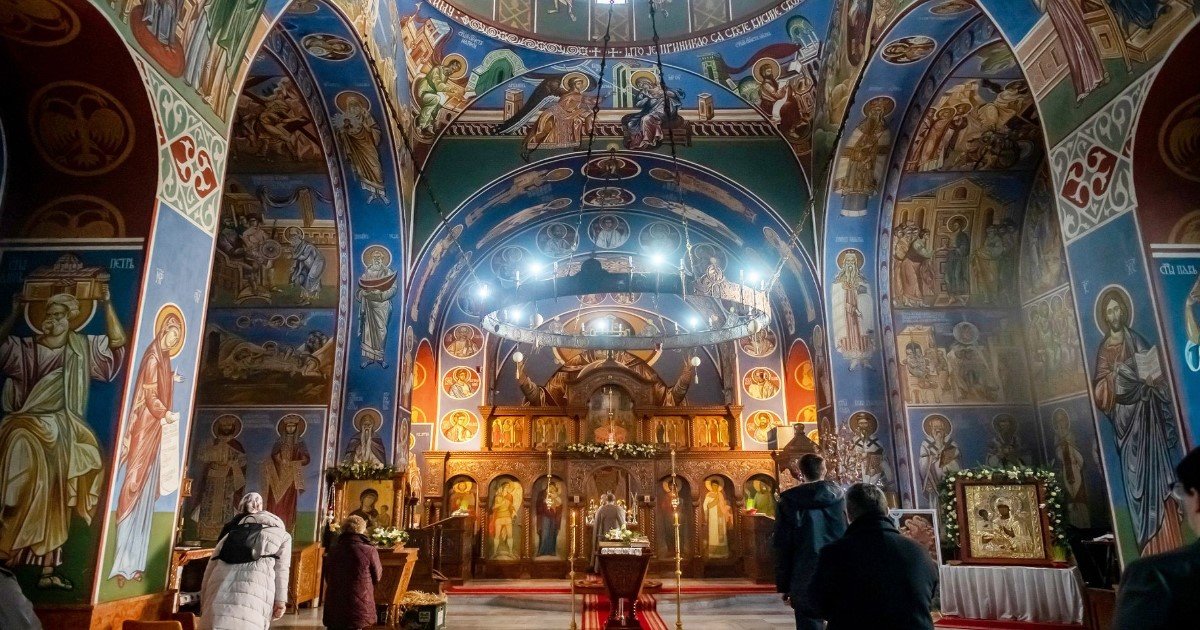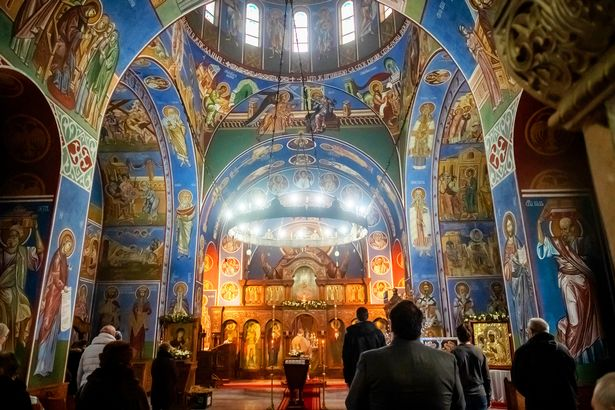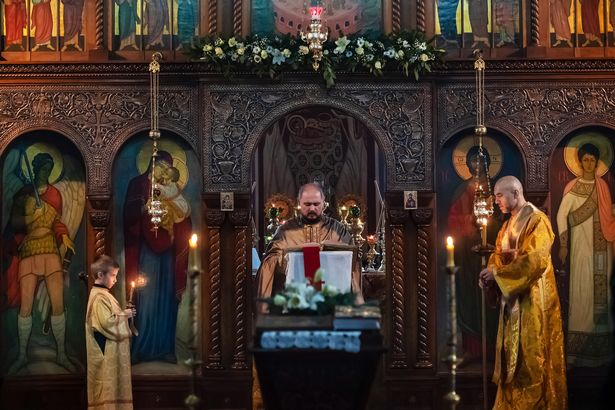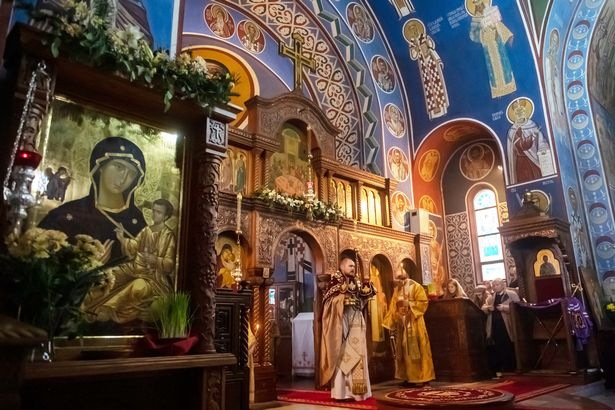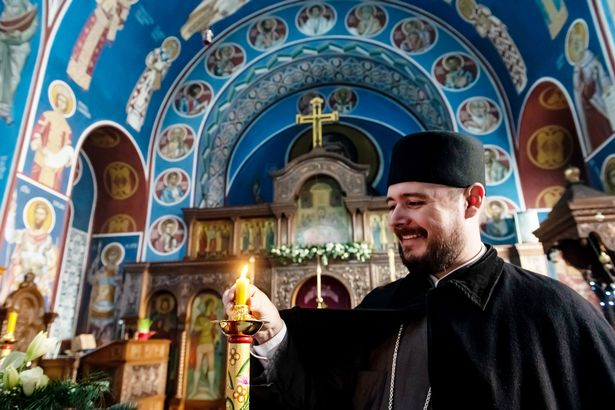Lazarica Church is England’s first Serbian Orthodox church.
The church which is termed as ‘Birmingham’s hidden gem’ is embellished with breathtaking paintings based on the techniques of medieval frescos.
Take a look at the church below.
[rumble video_id=v62fm3 domain_id=u7nb2]
Video credit: Rumble
Orthodox Christians from Serbia got together at the historic church to mark the beginning of their Old New Year on January 12, Sunday.
The church, which now attracts Christians from the whole world, was built by Dr. Dragomir Tadic, a Yugoslavian architect after World War Two. It was constructed in the 14th century Byzantine design.
At the time, the holy shrine was mainly meant for giving space to political refugees belonging to Yugoslavia.
Association of Serbians with the village began after Dame Elizabeth Cadbury decided to sponsor 13 Serbian children who were refugees of World War One.
The Cadbury family offered a huge piece of land to Fr Milenko Zebić after which, the construction of the church was started.
The shrine was completely constructed in 1968 with the continuous help of the Bournville Village Trust.
The holy place is dedicated to Holy Prince Lazar who belongs to Kosovo and whose remains are believed to be still buried under the church foundation.
All the material required for construction, such as marble, sandstone columns, walnut furniture superimposed by beaten copper, and soothing candelabra, was transported from Yugoslavia.
Overwhelming paintings created by Fresco-secco techniques were used to adorn the ceilings and gigantic walls.
The al-secco artworks, which were made by mixing pigment with some organic binder imposed on a layer of dry plaster, are considered copies of most popular Serbian medieval frescos.
The paintings created by Serbian artisan Dušan Mihajlović are just one of the many things in Lazarica Church that astounds every viewer.
“Lazarica is evidence and a reminder of the strength and power of faith,” says the church.
“Those who came to UK after the Second World War, who lost all their earthly possessions, their friends, family, their homeland and their youth, brought with them their faith and the need to follow the example of Christ, Saint Sava and Saint Lazar. This church is their legacy.”
Replaced!


